RBS smashes expectations with £940m profit
State-backed bank celebrates half-year success, but shadow hangs over rest of year
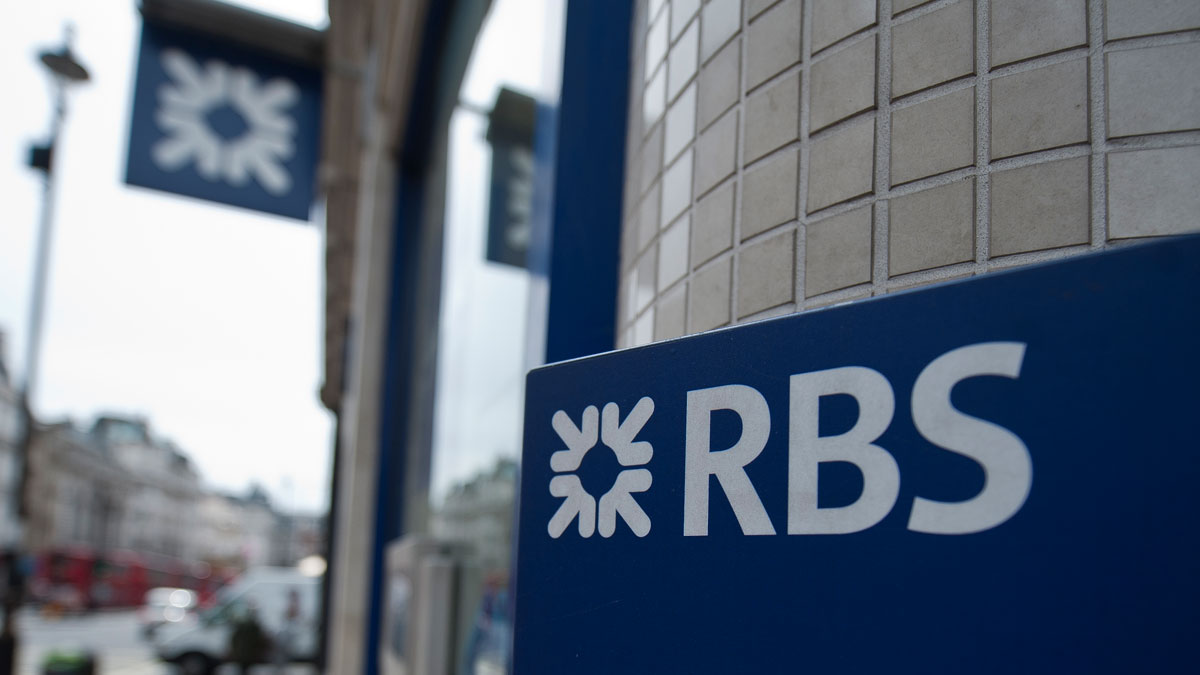
A free daily email with the biggest news stories of the day – and the best features from TheWeek.com
You are now subscribed
Your newsletter sign-up was successful
RBS reports first quarterly profit since 2015
28 April
Royal Bank of Scotland has reported its first quarterly profit since the third quarter of 2015.
Figures for the first three months of 2017 revealed a profit of £259m, compared with a £968m loss a year earlier, says the BBC.
The Week
Escape your echo chamber. Get the facts behind the news, plus analysis from multiple perspectives.

Sign up for The Week's Free Newsletters
From our morning news briefing to a weekly Good News Newsletter, get the best of The Week delivered directly to your inbox.
From our morning news briefing to a weekly Good News Newsletter, get the best of The Week delivered directly to your inbox.
Charges and penalties related to past wrongdoing, including payment protection insurance (PPI) mis-selling and market manipulation, saw RBS consistently report losses in the previous five quarters. In addition, it has suffered annual losses ever since the financial crisis.
However, bosses say 2017 "will probably be the final year it makes a loss as it moves nearer to resolving fines and settlements", adds the BBC.
In this case, RBS said there would be "no further provision for PPI mis-selling", while The Guardian reports that legal charges for the quarter amounted to a modest £54m.
On an underlying basis, profits rose from £1.06bn to £1.3bn and the bank reported it was well ahead of schedule on its cost-cutting, with close to 40 per cent of the £750m target now achieved.
A free daily email with the biggest news stories of the day – and the best features from TheWeek.com
Big costs are to come, however. RBS still does not know how much it will have to pay in the US over mortgage bond mis-selling in the lead-up to the financial crisis. It has set aside £3.1bn, but the eventual fine could be much higher.
Its plan to offload business customers to comply with a European Commission state aid ruling - still to be approved - will also incur heavy costs.
"Last week, Chancellor Philip Hammond admitted that the government was prepared to sell its stake in RBS at a loss," says the BBC. "The stake was bought in 2008 at a cost of £45bn."
RBS shares rose four per cent at the open, but by mid-morning, they were up just less than two per cent at 258p.
RBS will almost certainly be sold at a loss, says Hammond
19 April
Royal Bank of Scotland shares will almost certainly be sold at a loss to the taxpayer, Philip Hammond confirmed yesterday.
The Chancellor told MPs yesterday: "We have to live in the real world.
He added: "Our policy remains to return the bank to private hands as soon as we can achieve fair value for the shares, recognising that fair value could well be below what the previous government paid for them."
Shares in RBS were trading at around 229p this morning, well below half the level paid by the then Labour government when it bailed out the bank to the tune of £45bn during the financial crisis in 2008.
Hammond added: "We are making real progress in realising our holdings in the banking sector.
"We continue the programme sale of our shareholding in Lloyds, which is now down from 43 per cent to less than two per cent, and just last month we sold £12bn worth of Bradford & Bingley mortgages in a highly competitive process."
With Theresa May's call for an early general election dominating the headlines, yesterday was "a good day to bury bad news", says Simon Jack of the BBC. [http://www.bbc.co.uk/news/business-39636449]
The sale is still likely to be some way off, continues the journalist: Hammond has said he wants to sort legacy issues with RBS first and has indicated this could take until beyond 2020.
"There will be no sale until RBS settles its monster fine with the US authorities for its part in the subprime scandal and it gets approval for its plan to pay £750m to hang on to the seemingly unsellable Williams & Glynn," he adds.
Two years ago Hammond's predecessor George Osborne sold £2bn worth of shares in RBS at 330p a share, crystallising a £1bn loss for taxpayers.
RBS and NatWest to close 158 more branches
24 March
Royal Bank of Scotland is to close almost 160 branches from both its core brand in Scotland and its NatWest business in England.
In a statement today, the bank said it will close 30 RBS and 128 NatWest branches, blaming the steady shift in banking habits, which has seen physical transactions decline 43 per cent since 2010 while its mobile and online banking business has surged 400 per cent, says the BBC.
RBS said it now has 4.2 million people using its mobile banking apps, a figure that has nearly doubled in the past three years.
A spokesman said: "We interact with our customers over 20 times more through digital channels than physical ones. As customers change the way they bank with us, we must change the way we serve them.
"The role of the branch is fast moving to a centre for advice, away from basic transactions. While the branch will still be a core part of our offering to customers, inevitably some branches will have to close."
RBS added the changes will affect 770 staff, although 300 will move to other jobs. Of the remaining 470 workers, job losses will be capped at 362, reports The Guardian.
The bank also said it will create two new roles to provide support to rural communities and to customers to train customers in "digital skills", adds the BBC.
After the closures, 151 RBS and 856 NatWest branches will remain.
Unite union acting general secretary Gail Cartmail accused the bank of "turning its back" on communities.
"Banks have a duty to the wider community and that is especially the case for banks like RBS that have large taxpayer-owned shareholdings," she said.
"People like the face-to-face contact that having a physical presence in the high street provides. It's time for banking regulators and government to intervene, to force banks to maintain an adequate network that properly serves communities across the UK."
RBS losses triple in 2016 as legal costs bite
February 24
Royal Bank of Scotland reported another hefty loss last year for the ninth consecutive year.
Preliminary full-year figures show RBS was in the red to the tune of £7bn for 2016, more than triple the £2bn of 2015.
The bank said the loss was mainly the fault of ongoing costs related to past wrongdoing that totalled £6bn for the year, says The Guardian.
Most significant of these is a new provision related to a fine RBS is facing in the US over the mis-selling of mortgage bonds prior to the financial crash of 2008, for which it has set aside a total of £6.8bn, although some analysts believe even that may not be enough.
Those legal costs made up collectively the largest chunk of £10bn worth of "one-off items" that weighed on positive underlying earnings.
Chief executive Ross McEwan said "We made good progress throughout 2016 against our strategy. Our core business generated £4.2bn in adjusted pre-tax operating profit for the year," reports the BBC.
Even so, RBS has set out a new cost-cutting plan that will save around £2bn over the next four years and help the bank return to profit by the end of 2018.
However, that means more jobs losses and branch closures, which RBS says also reflect the increasing move of its customers towards online banking.
The measures are being opposed by union officials. Unite national officer Rob MacGregor said: "[RBS's] ruthless approach to pay for the mistakes of the past jeopardises customer service and risks leaving communities and businesses reliant on their local bank branch high and dry."
RBS's shares were down this morning in London, but having started out two per cent lower by 9.10am, they pared losses to around one per cent.
RBS accused of 'systemic' fraud and forgery
16 February
Royal Bank of Scotland stands accused of "systemically manipulating documents to cover up wrongdoing", says the BBC.
The bank is facing claims from a number of businesses that it forced them into financial distress and even caused them to fail.
But there are allegations that the bank was involved in similar practices even before the crash. One former employee, Mark Wright, says he was "suspicious of wrongdoing from 2005 to 2012".
He told BBC Radio 4 that he was the subject of five falsified complaints from five of his customers in 2005, which were "concocted" by two staff at the bank's compliance unit.
The five customers later submitted statements contradicting the bogus complaints and the two accused compliance staff subsequently left RBS, but Wright says he was never given the status of whistle-blower.
"Wright claims his standing within the bank suffered enormously as a result of his action…
His employment status within RBS was changed to 'undesirable' when previously he had been classed as 'excellent'. Bonuses were also stopped."
RGL management is representing 300 business customers in a planned court action which includes allegations of fraud and document tampering.
Specific cases cited by the BBC include that of former Metropolitan police sergeant Andy Keats, who "claims that fraud by RBS destroyed his security business in 2007".
Another RBS customer, builder Clive May from north Wales claims the bank deliberately made his company insolvent in 2011 after it illegally sold him a government Enterprise Finance Guarantee loan to which he was not entitled.
RBS categorically denies document manipulation and forgery.
-
 Crisis in Cuba: a ‘golden opportunity’ for Washington?
Crisis in Cuba: a ‘golden opportunity’ for Washington?Talking Point The Trump administration is applying the pressure, and with Latin America swinging to the right, Havana is becoming more ‘politically isolated’
-
 5 thoroughly redacted cartoons about Pam Bondi protecting predators
5 thoroughly redacted cartoons about Pam Bondi protecting predatorsCartoons Artists take on the real victim, types of protection, and more
-
 Palestine Action and the trouble with defining terrorism
Palestine Action and the trouble with defining terrorismIn the Spotlight The issues with proscribing the group ‘became apparent as soon as the police began putting it into practice’
-
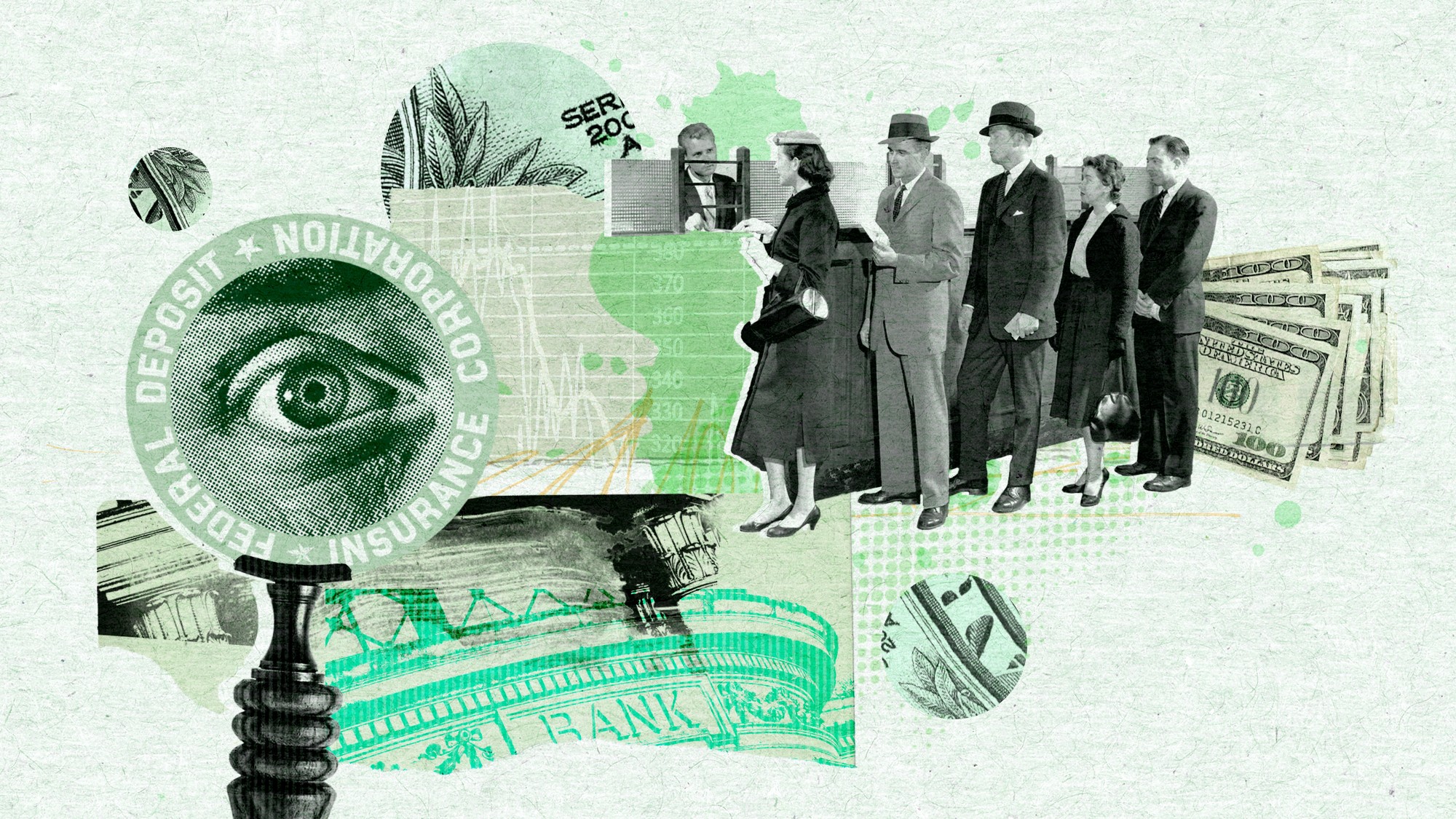 What does the FDIC do?
What does the FDIC do?In the Spotlight The Federal Deposit Insurance Corporation is now a 'Trump target'
-
 TD Bank accepts $3B fine over money laundering
TD Bank accepts $3B fine over money launderingSpeed Read The US retail bank pleaded guilty to multiple criminal charges
-
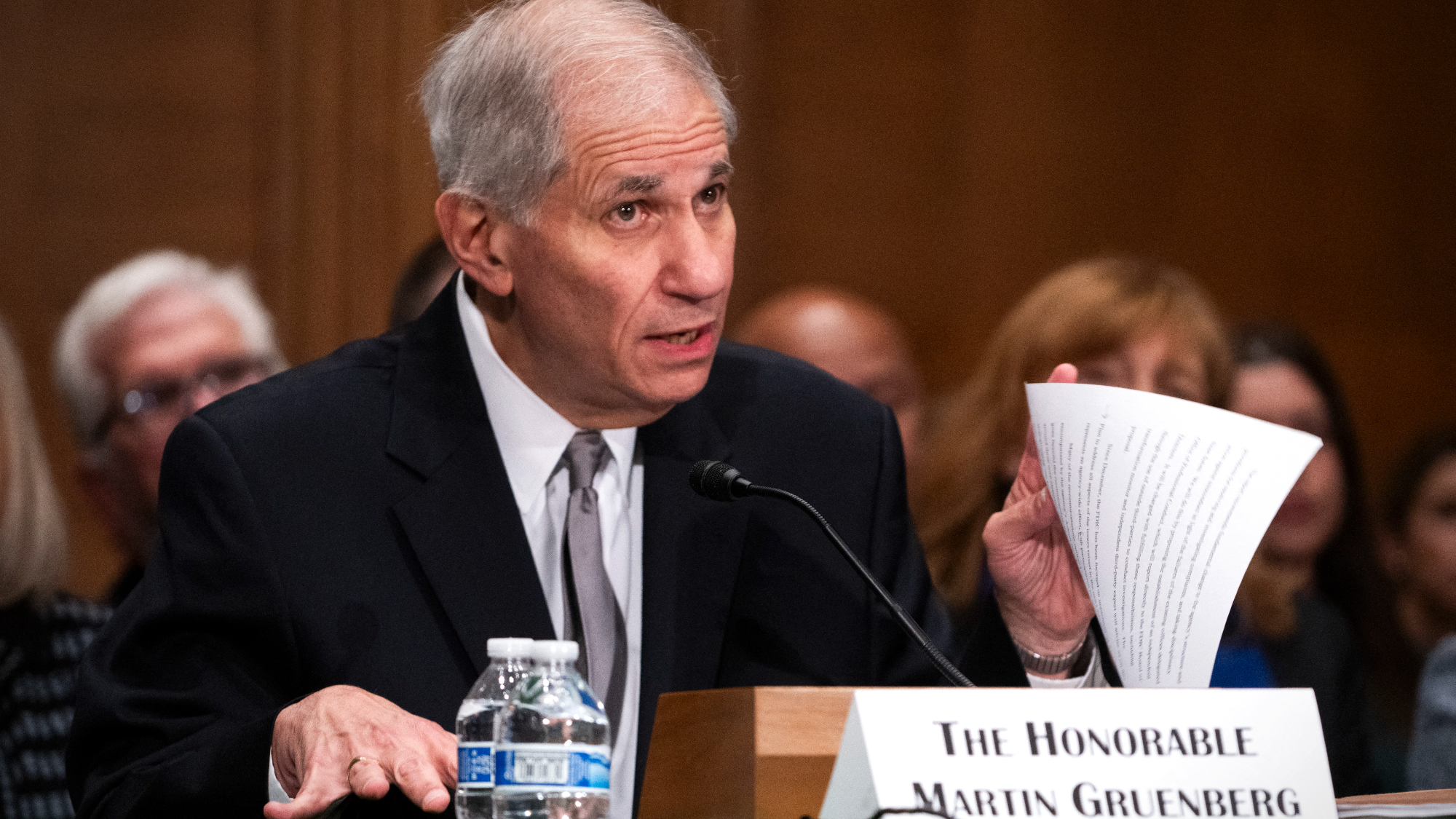 FDIC chair out after toxic work culture report
FDIC chair out after toxic work culture reportSpeed Read The report revealed a trend of sexual harassment and discrimination at the Federal Deposit Insurance Corporation
-
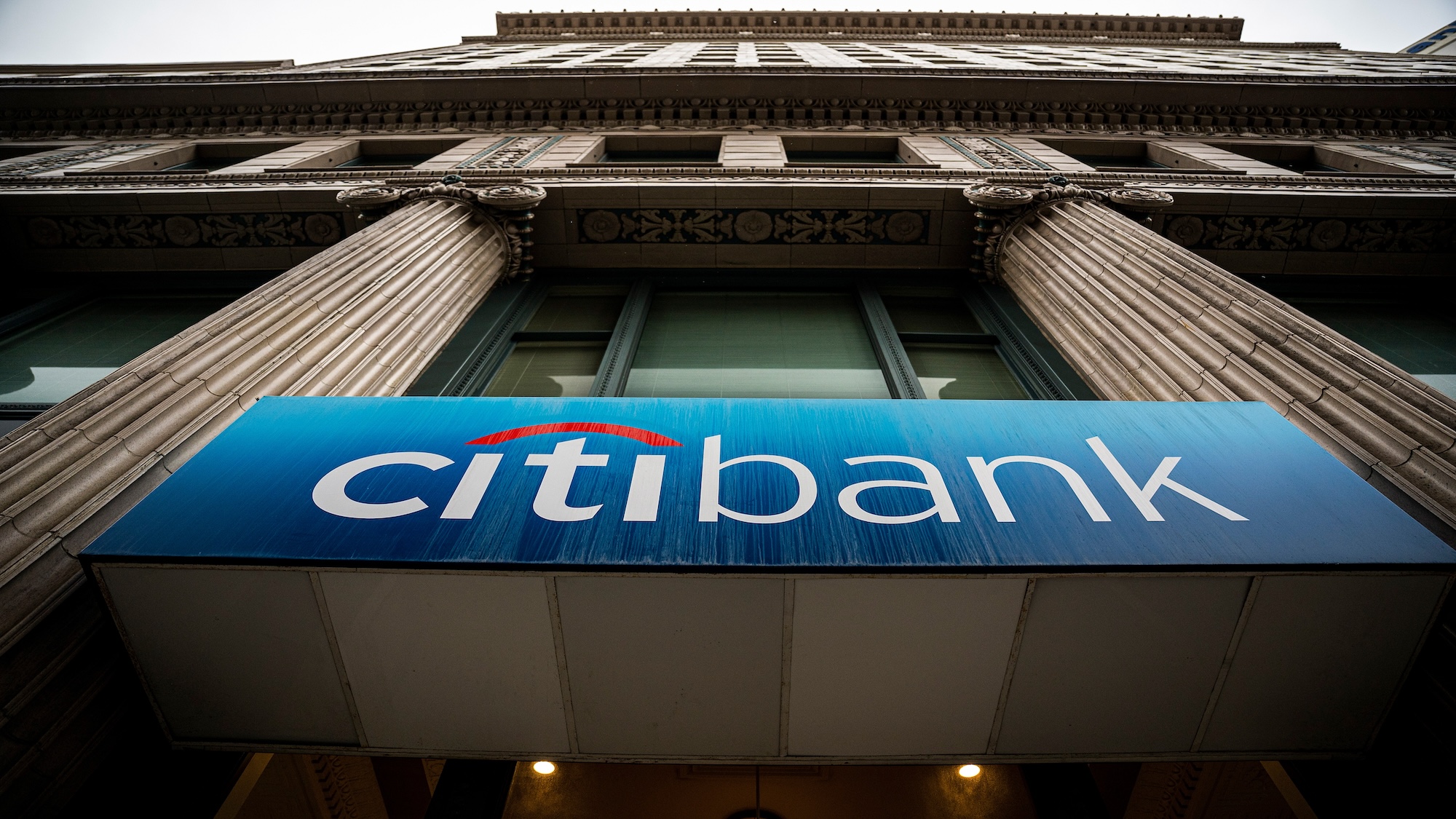 Citibank to cut off online access for customers who don't go paperless
Citibank to cut off online access for customers who don't go paperlessSpeed Read The bank will shut off the customer's access to both their online website and mobile app
-
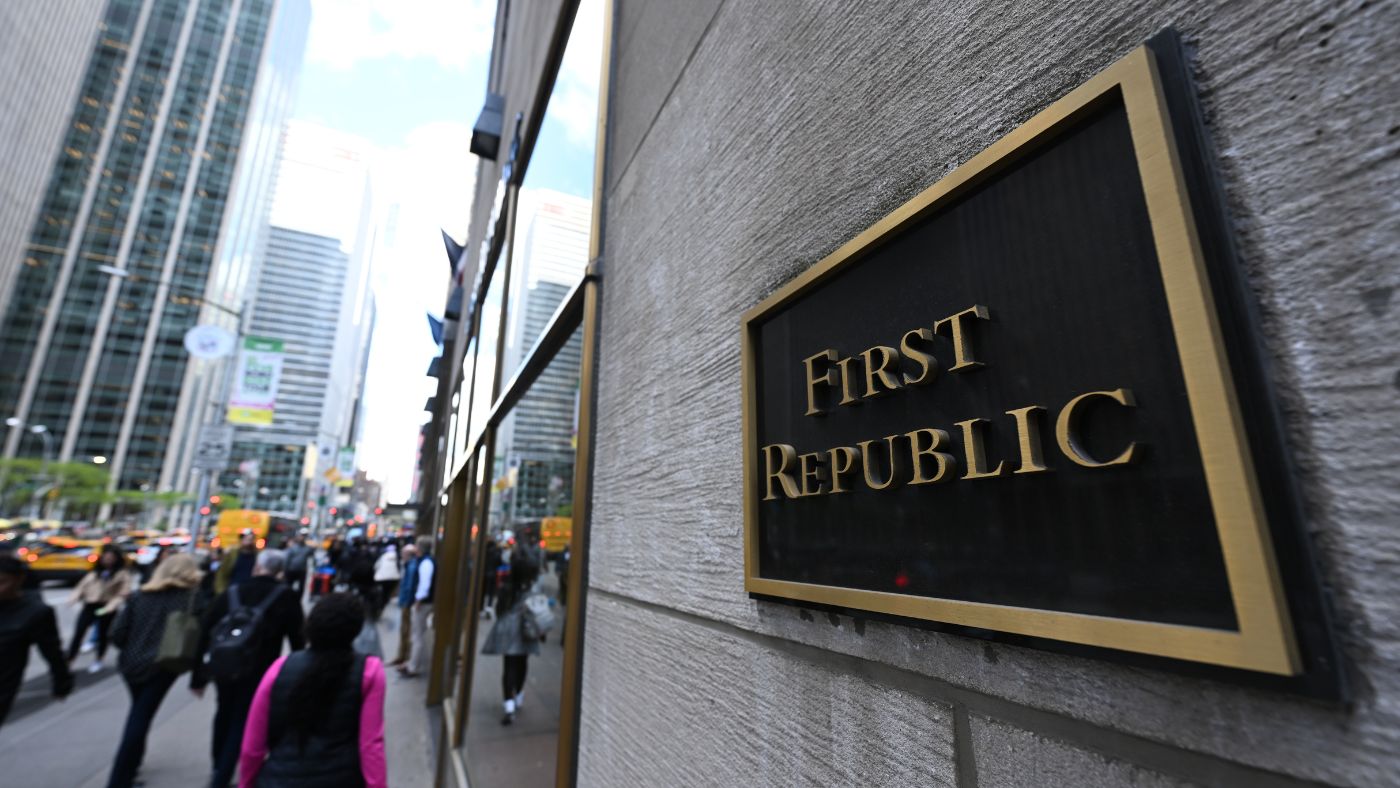 First Republic: will UK banks survive unscathed?
First Republic: will UK banks survive unscathed?Under the Radar US shares dip after collapse of third regional bank, but experts say contagion to the UK is unlikely
-
 Banking crisis: has the city weathered the financial storm?
Banking crisis: has the city weathered the financial storm?Talking Point The financial storm appears to have abated, but no one’s ruling out more squalls along the way
-
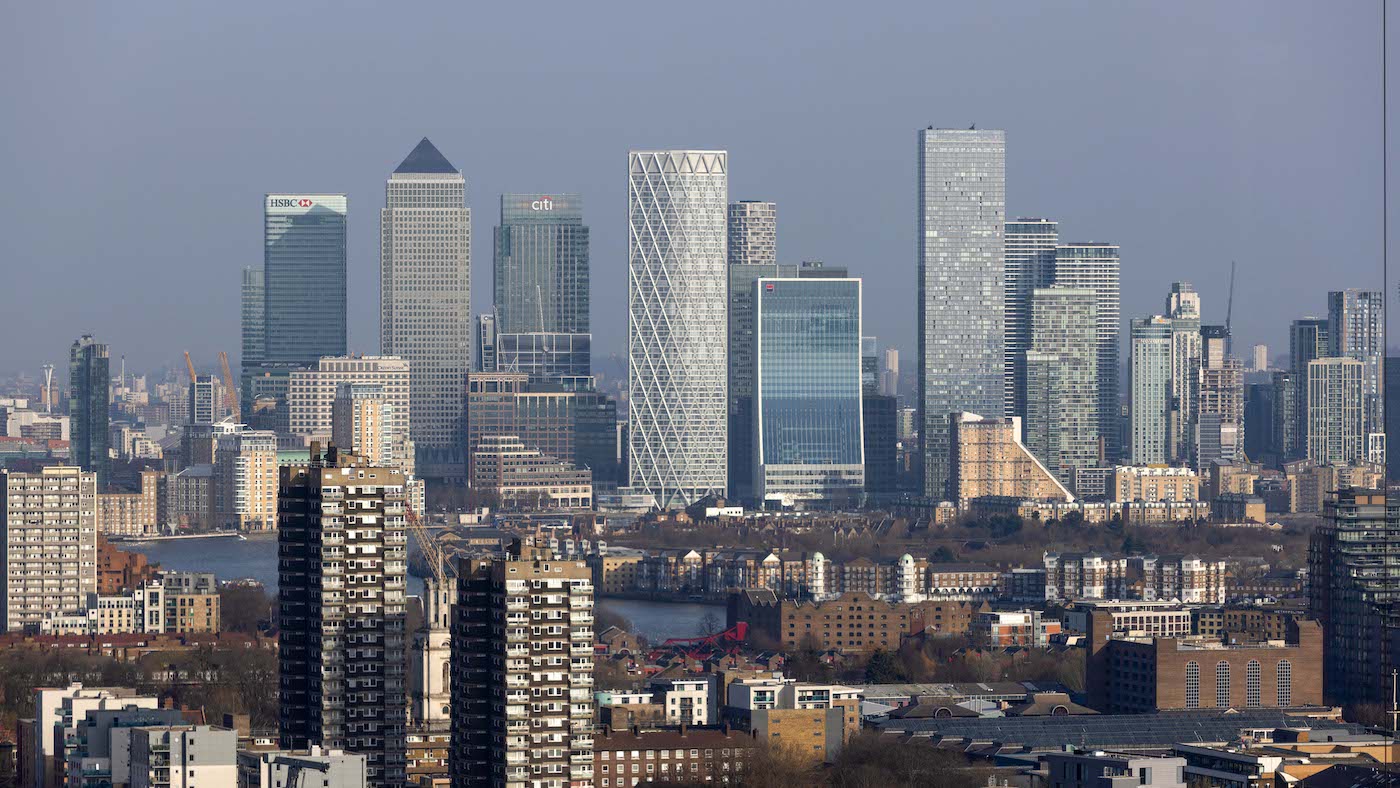 Should the UK relax bank ring-fencing rules?
Should the UK relax bank ring-fencing rules?Talking Point Treasury minister said he hopes to ‘boost competitiveness’ in the City with easing of regulations
-
 Should caps on bankers’ bonuses be scrapped?
Should caps on bankers’ bonuses be scrapped?Talking Point New chancellor Kwasi Kwarteng believed to be planning contentious move to ‘boost the City’